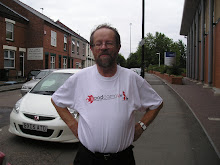We took the scenic route from Köln to Heidelberg, which meant we were travelling alongside the Rhein for a good deal of the time. And built along the Rhein are dozens of small towns, villages, and a few cities. Nearly every place had its own castle up on the hill above the town. Some of the them were more like fortresses, some had those delightful turrets that look as though they should belong in a fairytale illustration.
The more you travel around the more you wonder about all the people who live in these places, and what they do and how they all make a living. It’s strange how communities thrive in one place and not in another, how cities come into being in one place when another place never seems to grow. Just seeing the neverending crowds in the streets here is mindboggling. Where do they all come from? Do they all have homes somewhere? How did they come to be in this place at this time?
And as you travel along in the train you seen the endless building work that’s gone on: houses, factories, skyscrapers, railway lines by the million, train stations galore - and all the paraphernalia that goes with the presence of humans. We certainly make our mark on the earth.
And then there are the beggars. It’s very difficult to discern whether some of them are just conmen/women, or whether they have a real need. I determined not to pass another beggar by when we were in England, even if it was only to hand over a pound or two, but it’s become an impossible task here in Europe, where begging is a full-time profession for many. And as Celia says, some of them are so well-dressed. What are they doing begging?
How do you reconcile what Jesus says about caring for the poor when you’re overwhelmed by beggars on every hand? Do you have a right to give to one and not another? How much should you keep for yourself? The questions go on and on, and I don’t find the answers coming very easily.
Subscribe to:
Post Comments (Atom)

No comments:
Post a Comment